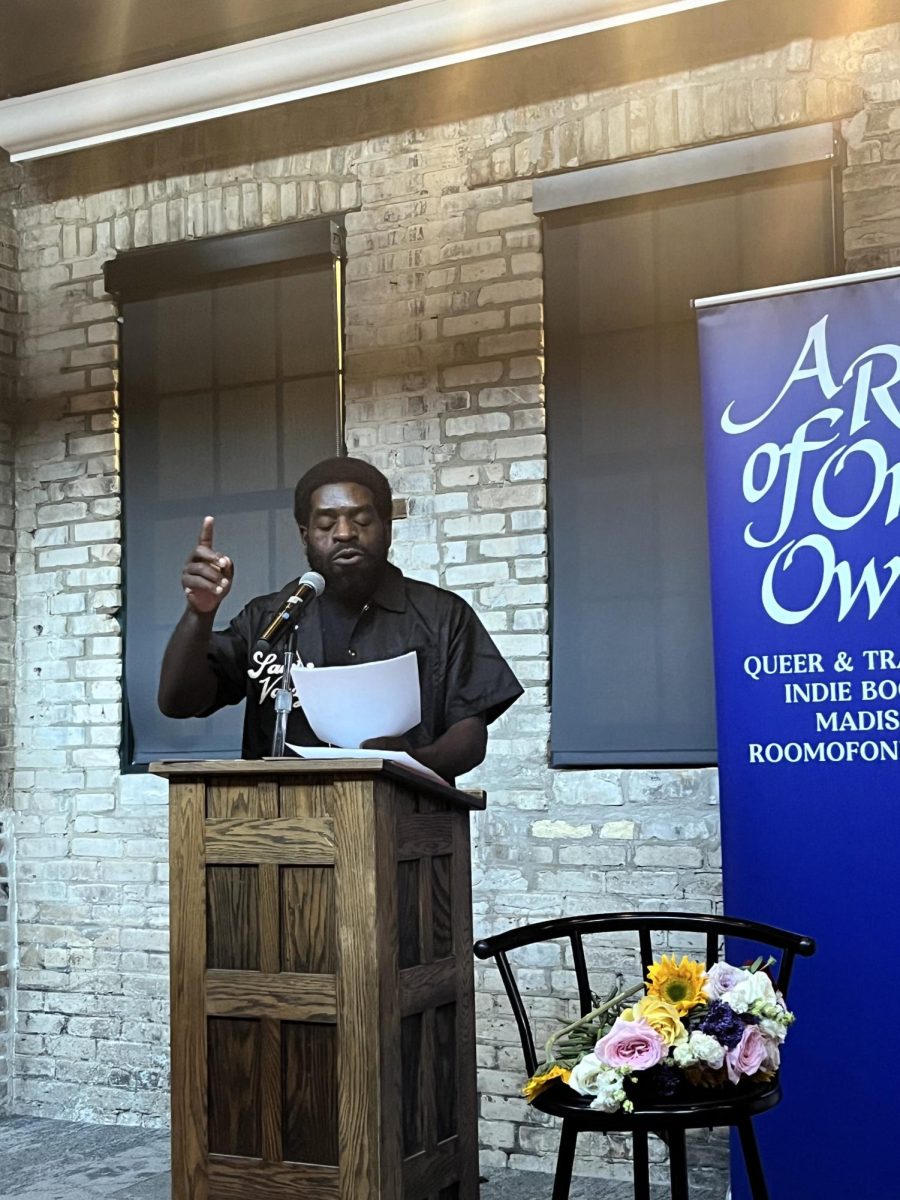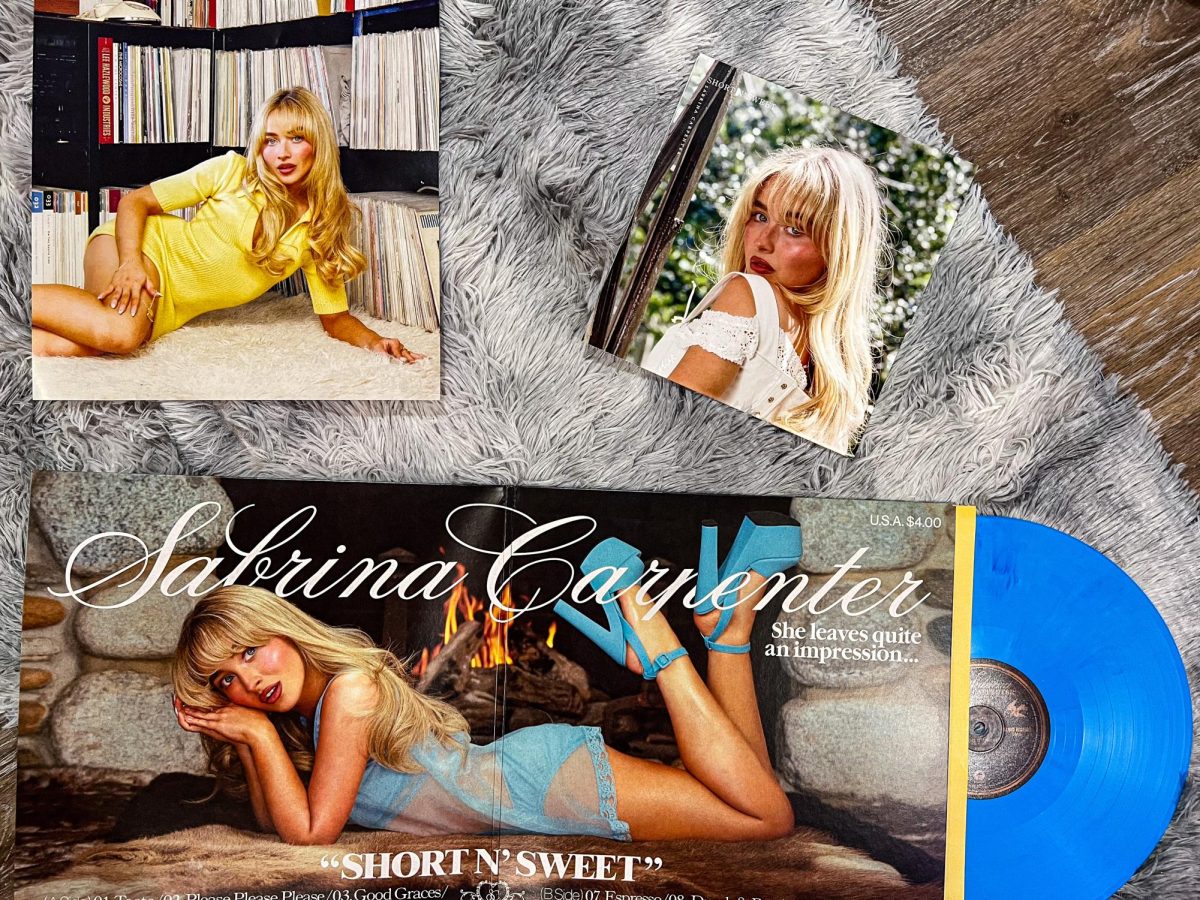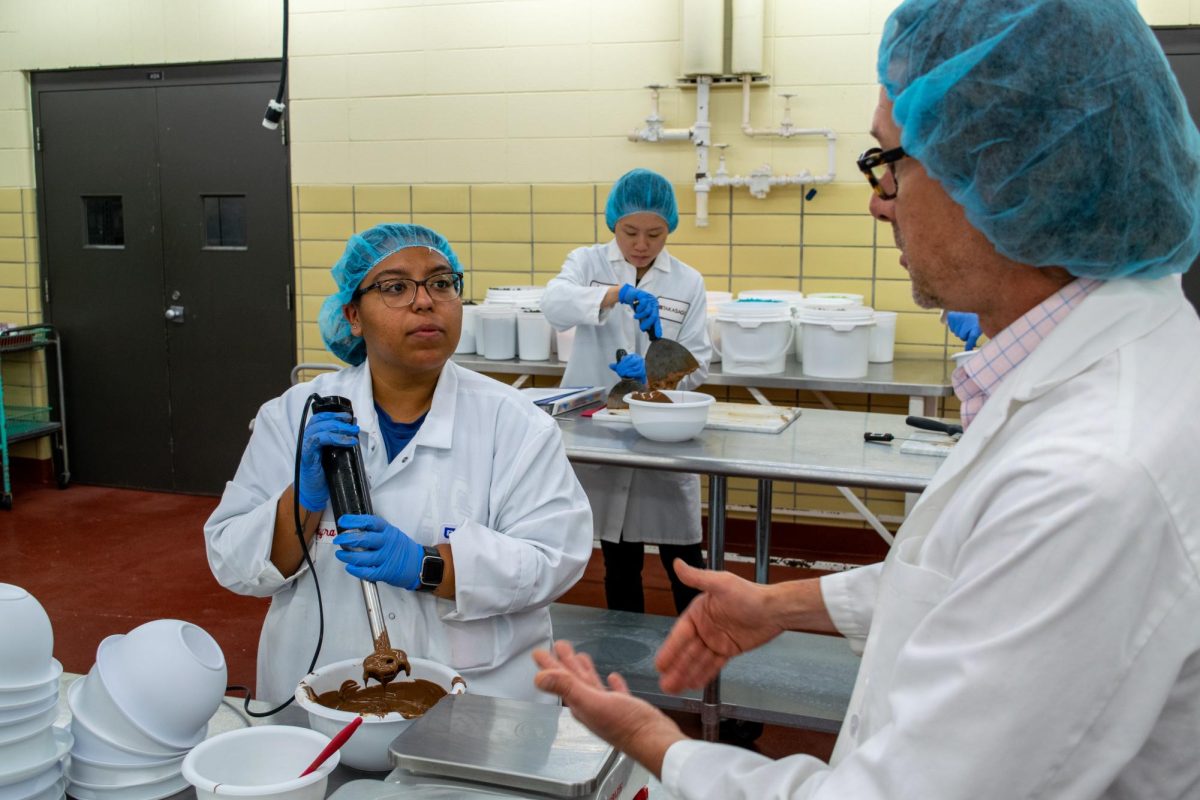If The Promise Ring’s 1999 release, Very Emergency, was the group’s party album, then its forthcoming follow-up Wood/Water is music for the morning after.
The group headed to London’s Jacob’s Studio in fall 2001 to work with producer Stephen Street (The Smiths, Blur, Cranberries) supported by a new record label, a subsidiary of Epitaph called Anti-. The band was armed with a handful of unrecorded songs, as “Say Goodbye Good” had already been put to tape earlier that year by long-time Beastie Boys producer Mario Caldato Jr.
All this namedropping has produced quite a bit of buzz on the streets for an album that hasn’t even been released yet. Then again, every TPR album has been surrounded by a certain amount of hoopla.
From the band’s debut album, 30 Degrees Everywhere, when the members were hailed as the poster boys for the emerging “emo” scene–a moniker they grew to hate–to TPR’s more mature sophomore effort, Nothing Feels Good, which launches the band onto MTV’s 120 Minutes, the band is no stranger to being deemed the next big thing. Lending evidence to this fact are Davey vonBohlen’s vocals on “Wake Up April,” off the new album Wood/Water: “So wake up America/ Now they’re setting me free/ I’ve been the next big thing/ since I can remember me,” chimes a matured vonBohlen.
But after releasing three full-length albums and three EPs with Jade Tree records, four of which were produced by Burning Airlines frontman J. Robbins, the band was eager for a change. “We had more money to work with this time, and we just wanted to do something different. I think that was the theme of our band for this year–changing everything, record labels, producers,” explained guitarist Jason Gnewikow in a recent interview with The Badger Herald.
Many of these changes occurred in the wake of spring 2000, when vonBohlen learned he had a tumor the size of a fist in his brain. Although the tumor was found to be benign, and was removed after a series of routine surgeries, the band was forced to take some time off. “If it hadn’t been for [the break], we might have made a completely predictable, uninteresting record. All that time off allowed us to slow down and take the time to make the record we wanted,” according to vonBohlen.
The rest allowed the band to take the appropriate amount of time needed to record a round of serious demos of the songs they were working on for the first time. Heading into a Milwaukee studio with friend Kristian Riley, the band used Pro Tools software to help flesh out songs in a way they never had in the past.
“For this record we were bored with the way we were writing songs and having a hard time writing songs we were happy with, so last February we went into a small Pro Tools studio. It was really fun being able to write while we were there, and Pro Tools is so flexible you can play around with arrangements really quickly,” Gnewikow said of the experience.
The change in approach is evident immediately on “Size Of Your Life,” Wood/Water‘s opening track, which is filled with the same simple rhythm and lead guitar lines TPR fans are familiar with. However, where the guitars are played clean, vonBohlen’s voice is distorted, and behind it all is extra percussion, keyboards and an acoustic guitar, all of which add the sort of depth yet to really be heard on a TPR album. Yet lyrically, it is still unmistakably The Promise Ring, as vonBohlen sings, “Yeah, I’ve been around before/ but this time I don’t know what’s in store,” lyrics that quite simply sum up the rest of the album.
Slated as the album’s first single, “Stop Playing Guitar” also embodies the same take-a-step-back, introspective attitude of the album. The song’s first lines, “So if I had a dime for/ every time that/ I should stop playing guitar/ and put my nose in a book/ well then my head would be healthy/ and my guitar would be dusty/ and that just might save me from a bunch of bad songs,” seem to refer not only to vonBohlen’s health, but also to that fact that the band was on the verge of breaking up prior to recording this album.
“Before we actually made this record I think everybody was really on the edge of just being like, ‘you know what, this is enough, this isn’t really happening and it shouldn’t be so much work.’ But you get along with it and you sort things out. And probably having spent so much time doing this, everyday that goes by it makes it that much harder to walk away,” Gnewikow said. “And we all still like playing music together.”
There are only a few questionable tracks on Wood/Water. “Letters To The Far Reaches,” which starts with the sound of a coffeemaker and features vonBohlen and an acoustic guitar, is one of the sparsest tracks on the album. vonBohlen’s voice sounds strained all the way through and far too layered with overdubs. The album’s last song, “Feed The Night,” is a similar track–almost painfully slow, again vonBohlen seems to leave the vocal range that he is most comfortable with, although it doesn’t help that the vocals have been made to sound as if they were recorded on a cheap tape recorder. The instrumentation, a few chords played with reverb on an electric guitar, is even barer and in the background is the sound of traffic passing by.
But in between these songs is the Mario C.-produced track “Say Goodbye Good,” which takes quite a departure from the usual TPR fare. It’s got a ’60s psychedelic-rock twist worthy of the Beatles. Filled with synthesizers, keyboards, a tambourine and acoustic guitars, the track ends with backing vocals by a gospel choir. It’s the most produced and experimental track on the album, making it stand out from all the rest; however, it might have been far more effective to cut the last track from the album and leave listeners with this one instead.
Although Wood/Water is much different from its most recent predecessor, any longtime fans of the band will probably understand that this album didn’t exactly come out of nowhere. Didier and vonBohlen have had an outlet for their more laid-back impulses in their side project with Pele guitarist Chris Rosenau-Vermont.
Gnewikow expressed his desire for a different direction as well: “I would have absolutely quit if we had written another record that was upbeat and rocking. I couldn’t be bothered to go out and play those kinds of songs again. I think this is a record that we’ve always wanted to make. It seems to make total sense that a band would, every other record, totally shift gears and want to do something completely different from what they had been doing. And maybe by the time this record is all done with I’ll be like, ‘wow, slow songs, boring’.”
With such high expectations already being placed on Wood/Water by the media, one might think the band would be a little jittery with its release date looming just weeks away. But as Gnewikow explains, the band just wanted to make an album that it would be happy with.
“My expectations have probably already been exceeded and the album’s not even out yet. So that’s probably a good sign. To be honest, I didn’t really think that anyone would care if we put out another record. I think there was a huge element to making this record that was like, ‘we don’t really care what anyone else thinks as long as we make a record that we really like.’ I think that’s a good attitude to have because it obviously doesn’t create all those expectations.”







